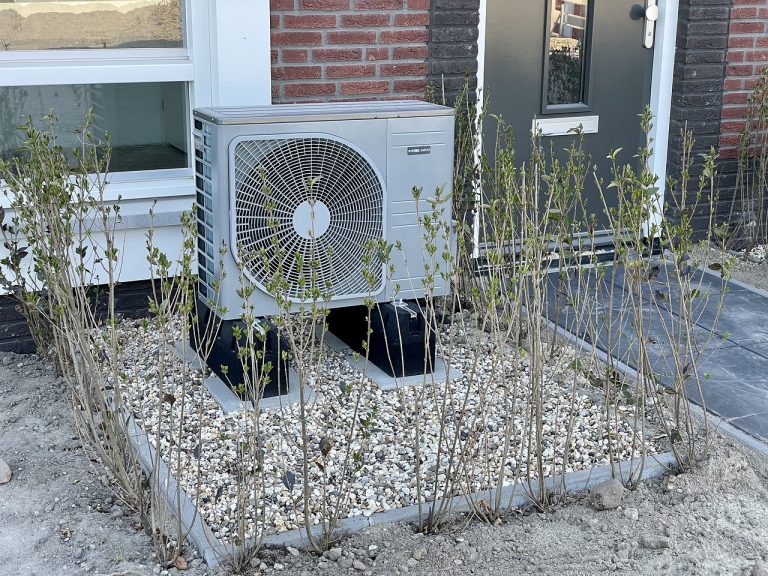
Air Source Heat Pumps in the UK in 2023
Analysing the Controversy Surrounding Air Source Heat Pumps in the UK in 2023
In the year 2023, the United Kingdom finds itself engrossed in a significant discourse surrounding air source heat pumps. These innovative systems have spurred debates about their potential benefits and drawbacks within the context of the UK’s evolving energy landscape. At Buckingham James, we aim to provide a comprehensive overview of the controversies associated with air source heat pumps while delving into their advantages from a wider standpoint.
The Polarised Discourse:
At its core, the controversy revolves around the environmental and economic impact of adopting air source heat pumps on a larger scale. Advocates argue that these devices have the potential to significantly reduce greenhouse gas emissions and contribute to the UK’s carbon reduction targets. By harnessing the ambient air to generate heat, air source heat pumps offer an alternative to traditional fossil fuel-based heating systems, thereby helping to mitigate the effects of climate change.
However, sceptics point to several challenges that temper the enthusiasm. One of the primary concerns is the upfront cost of purchasing and installing these heat pumps, which can be substantial. Furthermore, there is a legitimate debate about the practicality of implementing these systems in all types of residences, particularly older or architecturally complex buildings. Additionally, the reliance on electricity to power air source heat pumps prompts discussions about the overall environmental impact, given that the electricity generation mix still includes non-renewable sources.
Advantages of Air Source Heat Pumps:
While the controversy rages on, it’s essential to dissect the advantages that air source heat pumps bring to the table:
- Environmental Stewardship:
Air source heat pumps tap into a renewable energy source – the surrounding air. By leveraging this heat exchange process, they significantly reduce the carbon footprint associated with heating homes. This aligns with the broader global push for greener technologies and sustainable practices.
- Long-Term Savings:
Despite the initial investment, air source heat pumps often yield long-term financial benefits. They operate more efficiently than conventional heating systems, translating to reduced energy consumption and lower utility bills over time. This cost-effectiveness is a significant draw for homeowners seeking to minimize their energy expenditures.
- Versatility and Adaptability:
One of the strengths of air source heat pumps is their adaptability to various architectural structures. They can be retrofitted into existing buildings and seamlessly integrated into new constructions. This versatility makes them a viable solution for a wide range of residential settings.
- Noise and Pollution Reduction:
Unlike traditional heating systems that rely on combustion, air source heat pumps operate quietly and emit no harmful pollutants. This not only enhances the living environment but also contributes to reducing noise pollution and improving local air quality.
- Energy Independence:
With the global shift towards renewable energy sources, air source heat pumps align with a vision of decreased reliance on fossil fuels. By decreasing dependence on foreign energy imports and non-renewable resources, these systems can bolster a nation’s energy security and resilience.
In Conclusion:
As the discussions surrounding air source heat pumps in the UK persist, it’s evident that both proponents and critics bring valid points to the table. The environmental advantages and long-term economic benefits of these systems are promising. Still, it’s equally important to address the challenges of affordability, installation feasibility, and electricity sourcing to ensure a holistic approach to sustainable energy adoption.
Ultimately, the controversy signifies a nation grappling with the complexities of transitioning to cleaner energy solutions. While it may take time to strike the right balance, the dialogue itself serves as a reminder of the UK’s commitment to shaping a more environmentally responsible future.
Anyone considering an air source heat pump – which could be powered by solar panels to reduce or even eliminate running costs – may want to get an idea of the financials involved by contacting energy suppliers such as Octopus who provide energy from renewable energy sources.
The downside to air source heat pumps is they may not be the right option for badly insulated older properties or ones where there is limited space for the components required.
We hope you find this helpful and look forward to sharing other insights into how technology can help make your home running costs more affordable with energy-efficient solutions.
Speed up your mortgage application process by being prepared – get your free credit report above.
